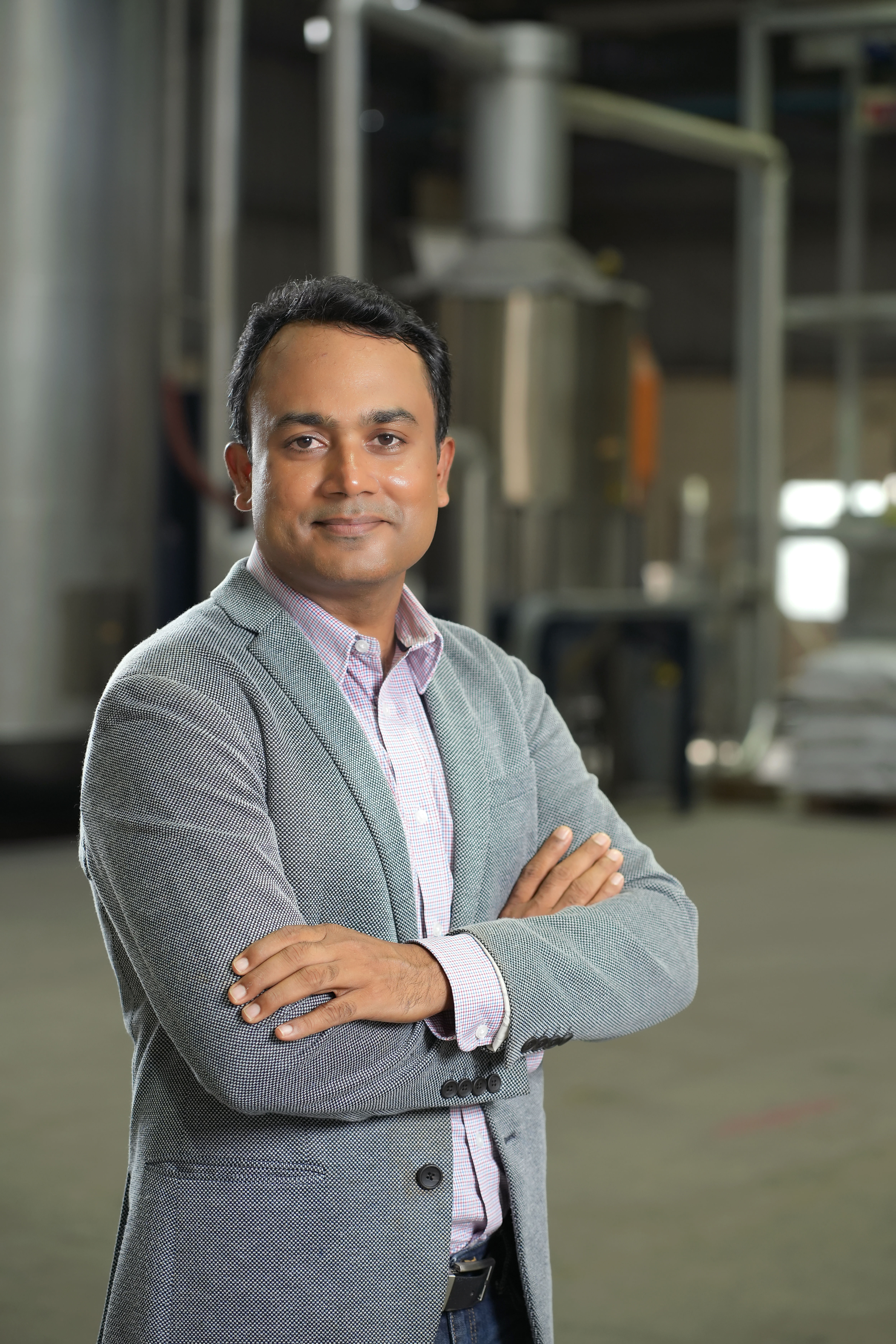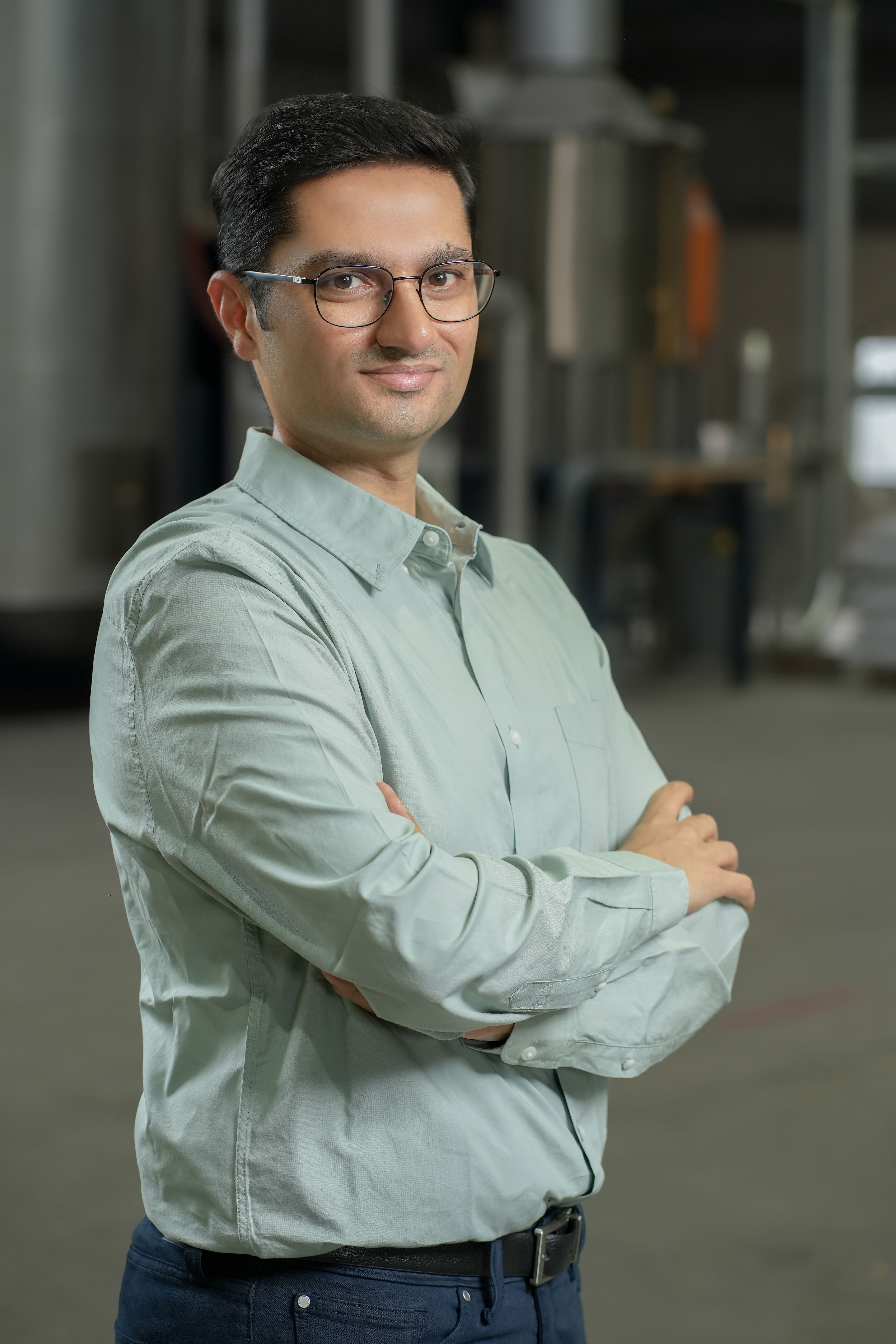We put one billion recycled plastic bottles on the shelves: Mani Vajipey
Banyan Nation is India’s first vertically integrated plastic recycling company that integrates informal workers in its supply chain, and produces premium human contact safe recycled plastics at its facility in Hyderabad. “Circular resins are an idea whose time has come. The industry needs to get behind this revolution and make sustainable and low carbon circular packaging the norm” says Mani Vajipey, founder of Banyan Nation
02 Nov 2023 | By Disha Chakraborty
Banyan was the first polyolefin company to be empanelled as a PCR supplier for major brands like Unilever, Reckitt, Shell, HPCL, and IOCL. Over the years Banyan Nation has helped set the industry benchmark for quality of recycled plastics. Mani Vajipey, founder of Banyan Nation talks to Disha Chakraborty of WhatPackaging?
Disha Chakraborty (DC): Where did it all start?
Mani Vajipey (MV): On a trip to India, during my MBA at Columbia Business School, I saw the dire need for a technical approach to solve the plaguing waste problem in the country. I was aware that most plastic waste in India was downcycled, with the exception of water bottles. Recycling was still a relatively new idea that was mostly practised in unofficial settings. I founded Banyan Nation in 2013. Rajkiran Madangopal, a fellow University of Delaware graduate, joined me shortly. Banyan Nation was incubated at Columbia Business School and under the guidance of waste management pioneer Ron Gonen, the idea was then conceptualised.
DC: A little about you and the journey of Banyan Nation
MV: Raj and I visited Hyderabad and Bengaluru to conduct research and met with a wide range of stakeholders, including managers at large multi-national corporations, city municipal commissioners, private waste management organisations, rag pickers, scrap collectors, and kabadiwalas. We concluded that India was in desperate need of a business that could streamline the entire process of managing plastic waste, from collection to transportation and recycling.

Mani Vajipey, founder, Banyan Nation
DC: How did you get global recognition?
MV: Over time, with continuous R&D in the cleaning and processing technologies, Banyan became the first Indian company to win The Dell’s People Choice Award in Circular Economy at the World Economic Forum in Davos 2018. That strengthened the technological capability of the company. Since then, Banyan has partnered with many global brands for establishing a circular economy in the FMCG sector. In late 2019, a 10,000 TPA state of the art facility was established to meet the increasing demands of the sector and to serve brands looking towards building a sustainable future.
Awards:
- The Circulars People's Choice Award by the World Economic Forum (2018)
- Technology Pioneer by the World Economic Forum (2021)
- Listed as part of The APAC Cleantech 25 list (2022)
- Social Enterprise Award at the Economic Times Startup Awards (2022)
- Climate Warrior Award at the Forbes India Leadership Awards (2023)
- Foundation for Innovative Packaging and Sustainability Award (FIPSA) in the Sustainability category (2023)
DC: How does PCR packaging differ from compostable and recyclable packaging?
MV: Post-consumer resin (PCR) packaging is made from plastic materials collected from consumers or end-users, such as used plastic bottles. Compostable packaging is made from biodegradable materials, such as plant-based plastics and paper. While recyclable packaging includes various materials (paper, plastic, glass, metal) and relies on local recycling programs, its effectiveness varies by region and the facilities available.
DC: How do you sort the plastics?
MV: We collect the post-consumer plastic waste by our informal supply chain network which is then sorted, cleaned, processed, and turned into human contact safe recycled plastic granules at our recycling facility. These recycled plastic granules will in turn be used to create new plastic packaging thereby reducing both the demand to produce virgin plastic and the environmental impact of new plastic production.
DC: How to make the switch to PCR packaging in terms of technology and process?
MV: Brands would firstly need to establish a partnership with recycling companies like Banyan Nation to ensure a steady supply of PCR which passes their brand-specific quality checks to meet their product safety standards. Our recycled plastics pass EU and US packaging safety norms and are human-contact safe. We work with the bottle manufacturers to ensure that the PCR plastic bottles meet the performance, quality, safety, and aesthetic criteria for the brand. Where needed, we also work with the masterbatch companies to ensure that PCR works effectively with the brand colors.
.png)
A few examples of the PCR bottles
DC: How is the Indian market responding to PCR packaging?
MV: As consumers are getting more environmentally conscious, there’s no more the need for a drastic shift of the public mindset but more of a natural progression for brands to focus their efforts on sustainability.
DC: Are the customers ready to spend extra money on sustainable packaging?
MV: Banyan’s customers are brands that have a focus on sustainability and are willing to pay a premium for Banyan’s human contact safe, 100% traceable, premium recycled plastics. We believe, and our brand customers validate, that customers choose to buy sustainable products and brands over the regular ones, and in many cases, yes they pay a small premium for that sustainability assurance.
DC: A few challenges PCR is facing?
MV: The biggest challenge is that we are constantly compared to virgin plastics in price. The business models for virgin plastics and PCR are entirely different. The macro and micro factors affecting price are different too. Virgin plastic prices are directly linked to crude oil prices, whereas recycled plastics must factor in the cost of last mile collection, curation, transportation, sorting, washing, drying, extrusion, and quality testing.
DC: What would make the situation better?
MV: Consumers and brands need to be made more aware of the cost of sustainability and doing the right thing, and regulators need to create the right incentives and disincentive structures for brands to do the right thing.
DC: Does the regulation support PCR?
MV: Yes. India is one of the few countries across the world that has banned certain single-use plastics and mandated EPR. The regulations state that brands need to use a minimum of 25% recycled content for their packaging by 2025. With time, there would surely be more sustainability-focused initiatives from the government to help ease brands towards their shift to recycled materials.
DC: How do you think the price might come at par at least or lower down than virgin plastic?
MV: Advanced technology and better infrastructure can improve the quality and cost-effectiveness of PCR. Also, increase in demand of PCR could lead to reduced production costs which can in-turn reduce the cost of the end-product. While it might take time to achieve this lowered cost, in the meantime, the obvious environmental benefits of using PCR should help make the transition to PCR an attractive and achievable goal for brands. We work with many packaging converters and brands who don’t consider the cost to be a deterrent to adopting PCR. It is a small price to pay for a sustainable future.
DC: What are your plans with the Banyan Nation in the upcoming years?
MV: The current facility proves high-quality recycling can be done in India, at scale, and in an environmentally and socially responsible way. We are investing in additional technology to augment our engagement models with our informal supply chain, make our recycling systems even more resource efficient, and extend our reach and our products to more brands and companies. We aim to have an installed capacity of 50,000 tonnes by 2025, and ensure more brands use Banyan’s responsibly recycled plastics. We plan to work with other startups in the ecosystem, large corporations, policy makers, and customers to bring about a systemic and seismic shift in how Indians view plastics, and how the world views India – as a trailblazer in sustainability.
Rajkiran Madangopal, co-founder, Banyan Nation
DC: In your opinion at what capacities is our industry currently operating? How huge are the targets?
MV: The total addressable market (TAM) for recycled polyolefins alone is 1 million TPA across PP and HDPE. Currently, not even 1% of the demand is addressed.
DC: Most SMEs and MSMEs in the packaging vertical of our industry feel PCR ops requires scale and capacity and investments. What message do you have for this segment?
MV: We work with many packaging converters who are SMEs and they find no difficulty in adopting PCR – it simply requires a mindset shift. If you are willing and ready to step into the era of sustainable packaging, we are here to help you get there.
DC:Where should a company start to become the next Banyan Nation?
MV: Start by identifying a unique problem and an unmet market need that you are passionate about addressing. Build a core team of people equally passionate about the issue, and build your business one brick at a time.
DC: Do you believe the current policies of the government recognises the importance of PCR packaging?
MV: The Indian government introduced EPR regulations that place responsibility on producers for the end-of-life management of their products, including packaging. It is critical that there is a robust framework for implementation for this policy. Specifically, there needs to be better transparency, accountability, and ease of use built into the system.
Certifications:
- ISO 9001:2015
- ISO 14001:2015
- ISO 45001:2018
- Sedex Members Ethical Trading Audit - SMETA (Responsible Sourcing)
- Registered Recycler under Plastic Waste Management Rules 2016
- Global Recycled Standard (GRS)
- Recycled Claim Standard (RCS)
- Ocean Bound Plastic (OBP)
DC: What changes do you desire among the government’s think tank?
MV: The government could do more to either incentivise the brands that do the right thing or penalise the ones that don’t. The government could, for example, introduce incentives or tax breaks for manufacturers using PCR materials in their packaging making PCR more financially appealing.
Banyan Nation at a glance:
Banyan was the first polyolefin company to be empanelled as a PCR supplier for major brands like Unilever, Reckitt, Shell, HPCL, and IOCL. Over the years Banyan Nation has helped set the industry benchmark for quality of recycled plastics. This ten-year journey of creating, developing, and addressing the market for circular resins included many key milestones:
- On-boarded thousands of informal aggregators in its formal sourcing stream through a combination of the proprietary technology platform and high touch on-site visits, training, and material trading
- Banyan's innovative and proprietary data intelligence platforms enable the tracking and tracing of waste from collection to recycling, providing 100% transparency and accountability throughout the supply chain.
- The success of Banyan’s innovation in combating climate impact can be measured by the reduction in greenhouse gas emissions. Each kilogram of virgin plastics replaced by recycled plastics saves 2.5 Kilograms of CO2 from being emitted.
- In 2017, partnered with Tata Motors for auto bumper-to-bumper recycling
- In 2018, won the WEF circulars award for path breaking work in informal sector integration, plastic upcycling leading to human contact safe applications
- In 2019, signed industry-first contracts for PCR resins with top FMCG companies such as HUL
- In 2022, helped FMCG majors put out 1 billion bottles on the shelf using recycled plastic
- In 2023, achieved USFDA approval for certain streams of r-HDPE resin



